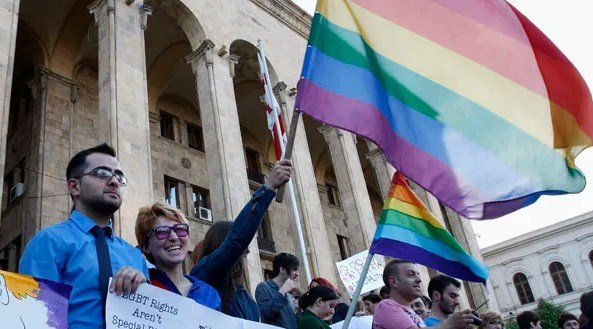Georgia’s Public Defender Nino Lomjaria has urged the Parliament to ensure that the constitutional rights of LGBT+ people are respected and protected in the draft law on the protection of children from harmful information.
What is the draft law about?
The draft law, initiated by the ruling Georgian Dream party, aims to regulate the dissemination of information that may have a negative impact on the physical, mental, moral, or social development of children. The draft law defines such information as any content that contains violence, pornography, gambling, drugs, alcohol, tobacco, or other harmful substances.
The draft law also proposes to create a special commission that would monitor and evaluate the information that is accessible to children, and impose sanctions on the violators. The commission would consist of representatives from the government, the parliament, the public defender’s office, the media, and civil society.

Why is the draft law controversial?
The draft law has sparked criticism and controversy from various groups, especially the LGBT+ community and their supporters, who fear that the draft law could be used to censor and discriminate against them. They argue that the draft law is vague and ambiguous, and that it could potentially label any information related to sexual orientation, gender identity, or expression as harmful to children.
They also claim that the draft law is influenced by the conservative and homophobic views of some members of the ruling party and the Georgian Orthodox Church, who have been vocal in opposing the rights and visibility of LGBT+ people in the country. They point out that the draft law was initiated shortly after the violent attacks on the Tbilisi Pride office in July 2023, which forced the organizers to cancel the planned Pride March.
What does the ombudsman say?
Georgia’s Public Defender Nino Lomjaria has expressed her concerns about the draft law in a statement on March 5, 2024. She said that the draft law could violate the constitutional rights of LGBT+ people, such as the freedom of expression, the right to information, and the right to equality.
She also said that the draft law could contradict Georgia’s international obligations and commitments, such as the European Convention on Human Rights and the Association Agreement with the European Union. She urged the Parliament to revise the draft law and ensure that it complies with the principles of democracy, human rights, and the rule of law.
She also called on the Parliament to consult with the relevant stakeholders, including the LGBT+ community, the media, and the civil society, and to take into account their opinions and recommendations.
How has the Parliament reacted?
The Parliament has not yet responded to the ombudsman’s statement, but some members of the ruling party have defended the draft law and denied any intention to discriminate against LGBT+ people. They said that the draft law is necessary to protect the children from harmful information and to respect the values and traditions of the Georgian society.
They also said that the draft law is not final and that it will undergo further discussions and amendments before it is adopted. They said that they are open to dialogue and cooperation with all interested parties, and that they will consider the ombudsman’s suggestions.
